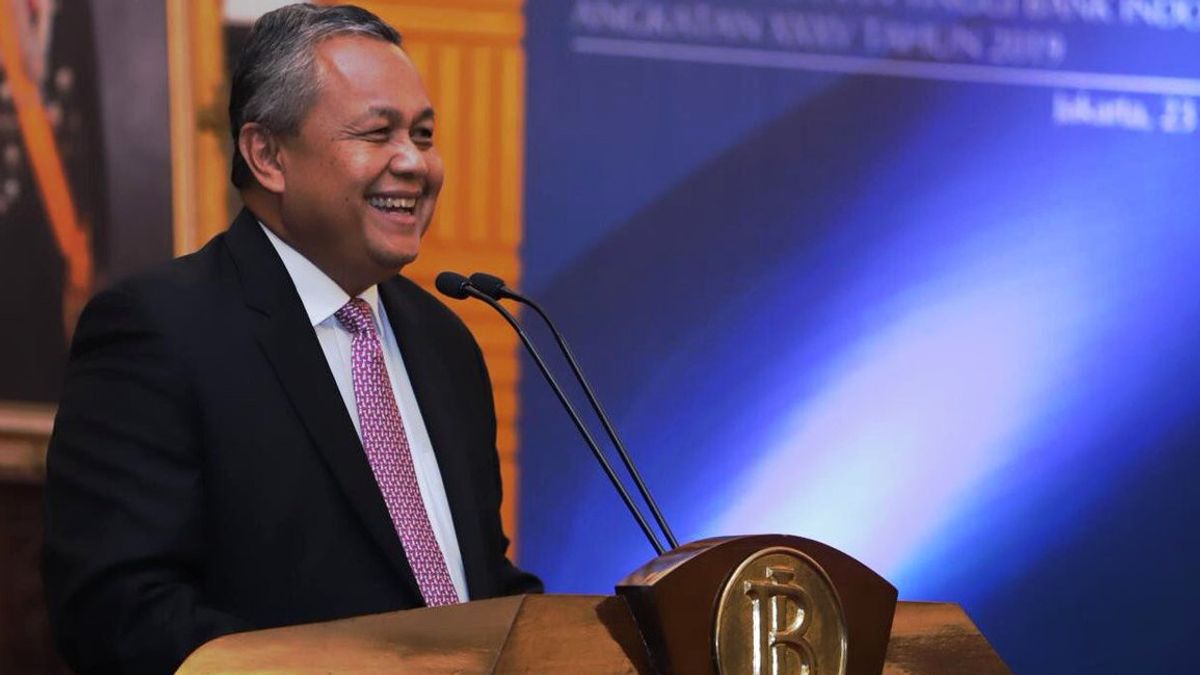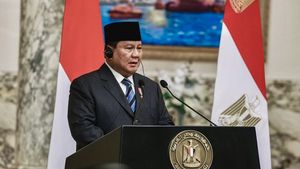JAKARTA - The rapid spread of COVID-19 to many countries outside China is putting pressure on the world economy. COVID-19 to March 18, 2020 has spread to 159 countries, not only in the Asian region, but also to Europe and the United States.
"This development has caused very high uncertainty and lowered the performance of global financial markets, put pressure on many world currencies, and triggered a reversal of capital to financial assets that are considered safe," said Governor of Bank Indonesia Perry Warjiyo during a live streaming of the press conference of Bank Indonesia, Thursday, March 19.
He said that the prospects for world economic growth have also declined due to disruption of the global supply chain, declining world demand, and weakening confidence in economic actors. February 2020 data shows various early global indicators such as economic player confidence, Purchasing Manager Index (PMI), and electricity consumption and production decreased sharply.
"With the downward risk that remains large, Bank Indonesia predicts global economic growth in 2020 to fall to 2.5 percent, lower than the 2019 economic growth of 2.9 percent and also the previous projection of 3.0 percent," Perry said.
Even so, he said, after the end of the COVID-19 outbreak, the global economy is expected to increase again in 2021 to 3.7 percent, higher than the previous forecast of 3.4 percent.
COVID-19 presents a challenge for efforts to boost domestic economic growth momentum. Slowing prospects for world economic growth lowered the prospects for growth in Indonesia's exports of goods, even though in February 2020 the increase was driven by exports of coal, CPO, and several manufactured products.
Service exports, especially the tourism sector, are also predicted to decline due to obstruction of the mobility process between countries in line with efforts to mitigate the risk of expanding COVID-19. Non-construction investment is at risk of slowing down due to declining prospects for exports of goods and services and disruption of the production chain.
"Bank Indonesia appreciates the government's fiscal stimulus measures in minimizing the impact of COVID-19, which together with the plan to hold simultaneous regional head elections are predicted to sustain economic growth prospects," said Perry.
Indonesia's Economic Growth Revision
With these developments, Bank Indonesia has revised its 2020 economic growth projection from 5.0-5.4 percent to 4.2-4.6 percent.
Even so, said Perry, after the end of COVID -19, economic growth in 2021 is estimated to increase again to 5.2-5.6 percent, partly due to the government's efforts to improve the investment climate through the Job Creation and Taxation Bill.
Bank Indonesia, said Perry, continues to strengthen coordination with the Government and OJK to closely monitor the dynamics of the spread of COVID-19 and its impact on Indonesia from time to time.
"As well, providing further policy coordination steps that need to be taken to maintain macroeconomic and financial system stability, as well as to sustain good and resilient economic growth in Indonesia," he concluded.
The English, Chinese, Japanese, Arabic, and French versions are automatically generated by the AI. So there may still be inaccuracies in translating, please always see Indonesian as our main language. (system supported by DigitalSiber.id)













